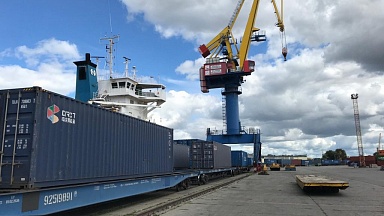At the same time, the company’s EBITDA income reached −74 million euros, which is also improved compared to 2022, when it was −227 million euros. Despite the slight improvements, DB Cargo’s business is still on the loss-making side, and this is also apparent in transport performance figures.
In fact, one could consider DB Cargo’s target to substantially reduce its losses (to −225 million euros) a mission impossible when looking at those figures. Specifically, in 2023, the freight carrier experienced drops in both volume and tonne-kilometres. Specifically, DB Cargo transported 197.6 million tonnes of cargo, down by 11.7 per cent compared to 2022 (222.3 million tonnes). In tonne-kilometres, the company registered a performance of 74,458 million tkm, also down by 12.5 per cent compared to 2022 (84,468 million tkm).
Negative as expected
Overall, the DB Group’s EBIT earnings were −964 million euros, slightly better than the year before, when the company lost more than 1.2 billion euros. The company explained that «additional expenses for infrastructure and substantial advance payments for the federal government amounting to more than one billion euros» contributed to the negative result. The expectation for 2024 is far more positive since DB hopes to close the year with an EBIT income of +1 billion euros.
Quarterly and half-year results will indicate whether DB will succeed in this mission, just like they did last year, when it was more or less apparent that, at least, DB Cargo would struggle to meet its goals since July.
Nevertheless, DB is in a restructuring phase that could see operations and subsidiaries transforming substantially. Considering that, 2024 will certainly be an interesting year for the German operator who wants to see its attempts for financial rehabilitation bear fruits.




